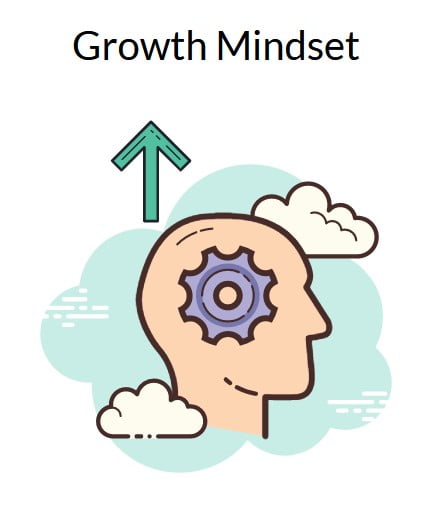What is a growth mindset?
A growth mindset is a way of thinking. It means ability can be developed and that failure is just a natural part of learning. We are not stuck with our born skills but we can change and grow.
Students with a growth mindset understand they can get smarter through hard work, effective strategies, and help from others when needed.

It is contrasted with a fixed mindset: the belief that intelligence is a fixed trait that is set in stone. In a Harvard Business Review article, Carol S. Dweck Ph.D. clarifies some common misperceptions of her famous work on mindsets(1).
1. Thinking you already have a growth mindset.
Dweck points out that we’re all a mix of growth and fixed mindsets. What we should do is continuously keep an eye on the fixed mindsets that we haven’t noticed. We should acknowledge that a pure growth mindset doesn’t exist. That we may forget that there are aspects of our life where we still have suboptimal thinking patterns.
2. You don’t only reward effort but also learning and progress.
It’s important to reward the right behavior. If you only reward “effort” you might encourage suboptimal habits of learning. A person might listen to heavily distracting music while trying to study complex math. It’s an effort but it’s not a smart nor an effective way to learn.
3. Take action. Do not just provide lip service.
Espousing the virtue of having a growth mindset is not a substitute for paying attention to your thoughts and pushing through barriers. Nor is it a substitute for providing a poor work environment where the right kind of effort is not encouraged. Positive psychology methods quite often require work. A growth mindset isn’t a magic pill. It takes time and practice to embody it.
Helpful tips and tricks. However, a growth mindset is much improved if we take control of our environment. For instance, we can incorporate ear muffs for studying in order to increase our ability to stay focused or stop listening to music.
References
- Dweck, C. S., & Yeager, D. S. (2019). Mindsets: A view from two eras. Perspectives on Psychological Science, 14(3), 481-496.